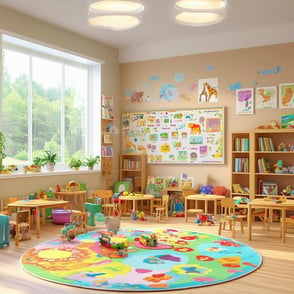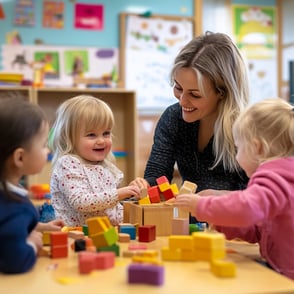This last year has been tough for us all. It will, no doubt, go down in history as one of the worst in memory. And for those of us who had to juggle the nightmare of working from home and educating our children from home, it should have, if anything, proved how critical childcare is, as a service, to the wider economy. The stress and anxiety that such conflicting priorities – work and child rearing – had on us all is well documented.
But what of the children?
Throughout this crisis, much of the debate centred around the existential threat Covid-19 posed to our collective health. The sheer numbers of mortality around the country and indeed the world is the stuff of nightmares. As the fear and the panic set in, most of us hunkered down in our apartments. Hoping to weather the storm, eat our tinned goods and resurface when it had all blown over.
But throughout the crisis, educators, such as myself, wrestled with another set of conflicting priorities. Should we focus on our own personal health or maintain our commitment to the children and families we serve? Because even as we’ve hunkered down to weather the storm to protect ourselves and society as a whole, there have been silent victims in all of this. The children who, voiceless as they are, have suffered the isolation. As well as the lack of social opportunity and, in many cases, the trauma of being locked inside with parents whose frustration, anxiety and pressure so often translated into abuse. A recent report from NSPCC sadly confirmed the massive rise in safeguarding and child protection incidence nationwide; a sad and sorry reflection of what happens when critical support is removed.
The extent of the psychological impact of Covid
At the height of the lockdown, 90% of children worldwide were without formal education (UNESCO). A recent report from UCL drew data from 27 global studies on the impact of closures on children’s psycho-social well-being. Concluding that a delta of 18-60% of young children scored above risk thresholds for distress, anxiety and depressive symptoms. Such concerns were voiced by Anne Longfield, the then Children’s Commissioner at the height of our own shut down, who admirably called for schools to be the first to open and the last to close. Despite pressure from teaching unions to the contrary. A salutary reminder that our children needed us to educate, inspire and engage if we were to avoid the obvious consequences to their mental well being, should we have failed to step up.
And many of us did. I am proud that Hatching Dragons staff all stepped up to continue providing care and education for the key workers. And then the families who needed or wanted our care, so that they could continue to focus on their own priorities during the crisis. But as the lockdown begins to ease, and “freedom day” was announced, we are beginning to see families apply for places at our nursery with children who have never had any social interaction in a formal, educational setting. And the consequences of the psychological impact of Covid, for me, are quite alarming.
What could future consequences be?
Children seem to be more closed, more fretful (at least at first) of other children. They have difficulty considering the needs of other children in the context of the society we build at our school. Behavioural difficulties are also readily apparent in those who have never had to compromise, or understand their place as a child in a group. I am anxious to understand the long-term impact of this lack of socialisation children have suffered in the early years. Anne Longfield again called for large-scale investment into children’s services to offset the legacy impact of the shut down on children’s mental health. Suggesting that these issues are real, are significant and will be with us for some time. Unless drastic measures are taken to improve the lot of our children.
Our promise
I am sure that this is going to be the subject of much on-going research. But, anecdotally, I’m already beginning to see a picture that doesn’t comfort me. And it reminds me of why I do what I do and why we did what we did as a school and as educators. We remained open to care, to educate and provide socialisation for children who, by all the evidence, needed us to remain open. As much as we, as adults, may have needed to protect ourselves by closing up. For me, and for all of us at Hatching Dragons, the children always come first.
We hope that this article provided you with insight into the psychological impact of covid closures on children. To find out more about our values and culture, see here:
Tags:
Early Years
11-Aug-2021 10:28:44
Related Articles






Write a Comment